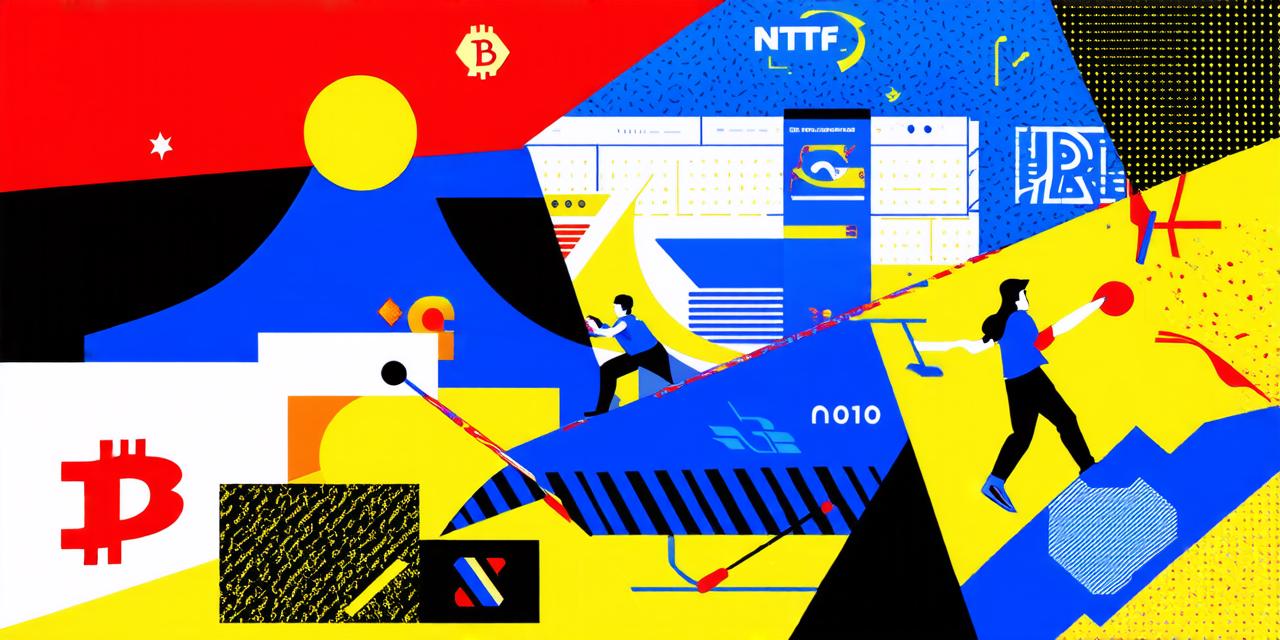Types of NFTs:
NFTs can be categorized into three main types based on their use cases and applications. The most common types of NFTs used in gaming are:
- In-game assets
- Art and collectibles
- Utility tokens
In-game assets:
These include items such as weapons, skins, characters, and other collectibles that can be bought, sold, and traded within the game. For example, a popular game like Fortnite uses NFTs for its in-game cosmetics, allowing players to purchase unique outfits and accessories using real money.
Art and collectibles:
These include digital artwork, music, videos, and other forms of creative content that can be minted as NFTs and sold to collectors. For instance, the game Cryptokitties uses NFTs for its digital cats, which can be bred, bought, and sold by players.
Utility tokens:
These are NFTs that grant users access to specific services or features within a game or platform. For example, a utility token could be used to unlock exclusive content or participate in special events. In the game NBA Top Shot, players can use NFTs representing basketball highlights and moments to gain access to exclusive content and events related to the sport.
Benefits of using NFTs in gaming:
There are several benefits to using NFTs in gaming, including:

- Monetization opportunities
- Engagement and incentivization
- Community building
- Rarity and scarcity
Monetization opportunities:
NFTs can provide game developers with new revenue streams by allowing them to sell unique and valuable digital assets to players. For instance, the game Sorare uses NFTs for its football player cards, which can be bought, sold, and traded by players.
Engagement and incentivization:
NFTs can be used to create exclusive content or features that are only available to players who own certain NFTs. This can incentivize players to buy and hold NFTs, leading to increased engagement and loyalty. For example, the game NBA Top Shot uses NFTs for its basketball highlights and moments, which can be used to unlock exclusive content and events related to the sport.
Community building:
NFTs can help game developers build a sense of community by creating shared experiences and items that players can collect and trade with each other. For instance, the game Cryptokitties uses NFTs for its digital cats, which can be bred and traded by players, creating a unique and engaged community around the game.
Rarity and scarcity:
The unique nature of NFTs makes them highly valuable and rare, creating excitement and competition among players who want to own them. For example, the game Axie Infinity uses NFTs for its axies, which can be bred, bought, and sold by players, creating a sense of rarity and scarcity around these digital creatures.
Potential challenges of using NFTs in gaming:
While there are many benefits to using NFTs in gaming, there are also potential challenges that game developers should be aware of, including:
- Complexity
- Regulatory risks
- Security risks
- Accessibility
Complexity:
NFTs can be complex and difficult for some players to understand, which could lead to confusion and frustration. Game developers need to ensure that their games provide clear explanations and tutorials on how NFTs work and how they can be used.
Regulatory risks:
The use of NFTs in gaming raises regulatory risks, particularly around issues such as money laundering and consumer protection. Game developers need to ensure that they comply with all relevant regulations and laws when using NFTs in their games.
Security risks:
NFTs are digital assets that can be stolen or hacked, posing a security risk to players’ investments. Game developers need to implement robust security measures to protect players’ NFTs and prevent any unauthorized access or theft.
Accessibility:
Not all games may be able to adopt NFTs easily due to technical limitations or high development costs. Game developers need to carefully consider whether NFTs are the right technology for their game before implementing them.
Summary:
In conclusion, the rise of NFTs presents game developers with a new opportunity to monetize their games and engage with their audience in new and innovative ways. While there are potential challenges to using NFTs in gaming, the benefits can be significant, including increased revenue streams, engagement, and community building. As NFT technology continues to evolve, we can expect to see even more creative and innovative uses of NFTs in gaming in the future. Game developers need to carefully consider whether NFTs are the right technology for their game and ensure that they comply with all relevant regulations and laws when using them.
Rules:
Do not add comments or descriptions of your own, like “”, “” or “Note: …”!
Do not change the content of the
